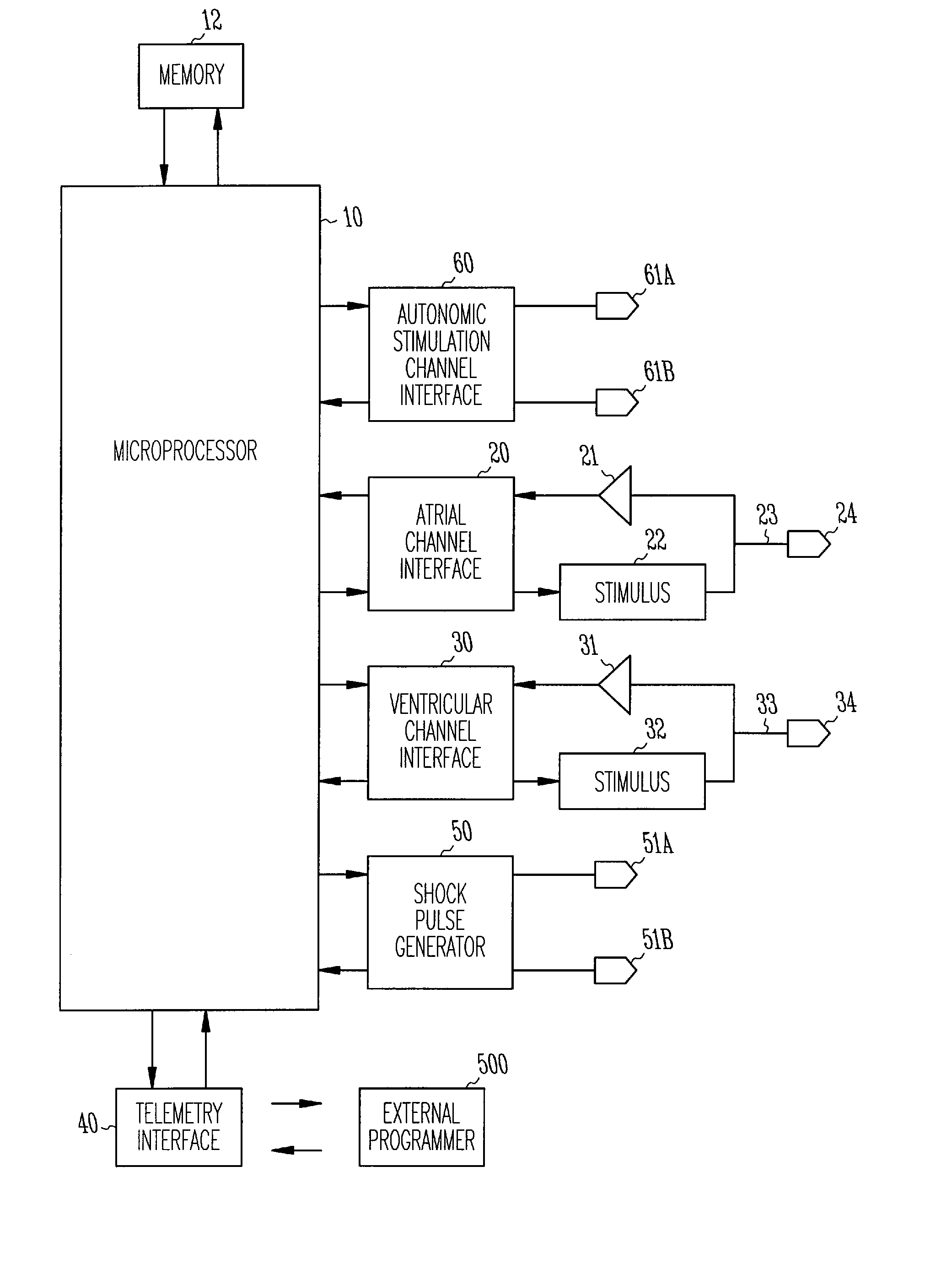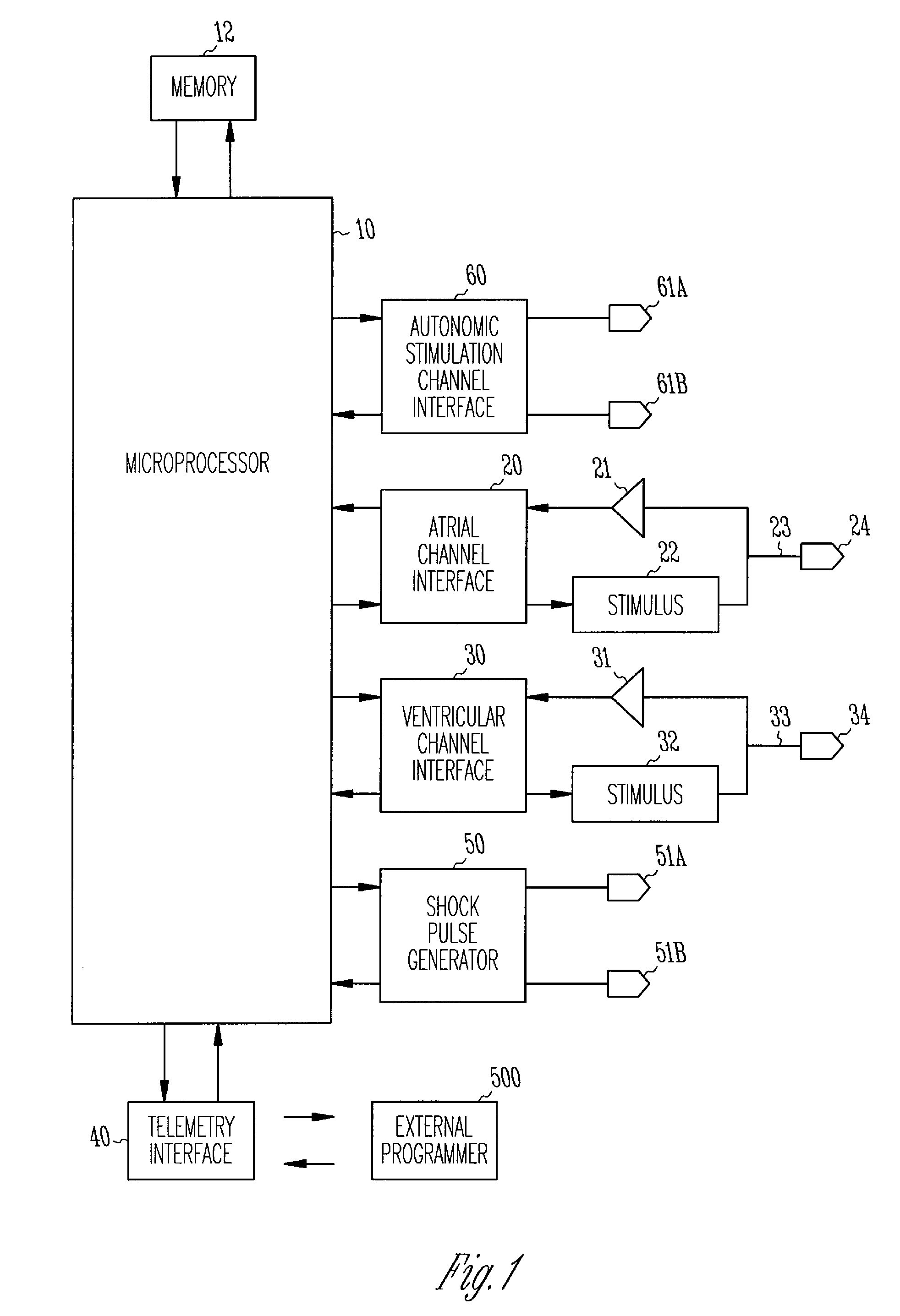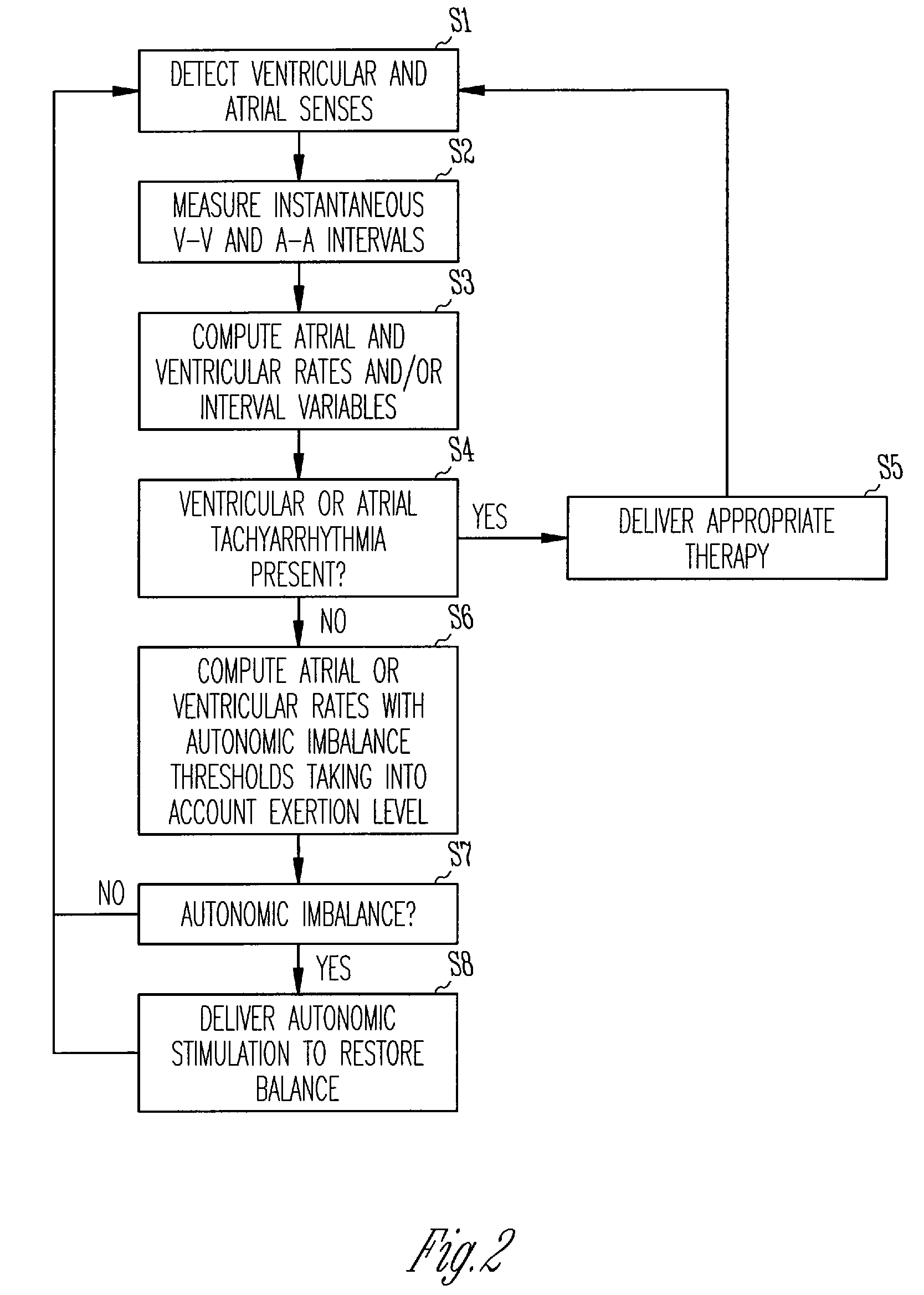Method and apparatus for preventing cardiac arrhythmias with endovascular stimulation
a cardiac arrhythmia and endovascular stimulation technology, applied in the field of cardiac rhythm disorders, can solve the problems of dyspnea, fatigue, vertigo, angina, and inability to achieve effective treatment, so as to prevent the onset of arrhythmias, increase relative activity, and restore autonomic balance
- Summary
- Abstract
- Description
- Claims
- Application Information
AI Technical Summary
Benefits of technology
Problems solved by technology
Method used
Image
Examples
Embodiment Construction
[0010] Autonomic imbalance may be a factor in the development of cardiac arrhythmias in some patients. Such an imbalance refers to the relative activity of the sympathetic and para-sympathetic arms of the autonomic nervous system. Sympathetic and parasympathetic nerves act on the heart via beta-adrenergic and muscarinic receptors, respectively, to affect both heart rate and the velocity at which excitation is conducted through the heart. Both of these effects may contribute to the development of arrhythmias under certain circumstances in individuals otherwise so disposed.
[0011] It is well-known, for example, that an increase in the activity of the sympathetic nervous system can make the onset of such arrhythmias more likely and may serve as a trigger for such events in certain patients. In one of its aspects, the present invention provides an implantable cardiac rhythm management device that counteracts the arrhythmogenic effects of increased sympathetic activity by electrically st...
PUM
 Login to View More
Login to View More Abstract
Description
Claims
Application Information
 Login to View More
Login to View More - R&D
- Intellectual Property
- Life Sciences
- Materials
- Tech Scout
- Unparalleled Data Quality
- Higher Quality Content
- 60% Fewer Hallucinations
Browse by: Latest US Patents, China's latest patents, Technical Efficacy Thesaurus, Application Domain, Technology Topic, Popular Technical Reports.
© 2025 PatSnap. All rights reserved.Legal|Privacy policy|Modern Slavery Act Transparency Statement|Sitemap|About US| Contact US: help@patsnap.com



